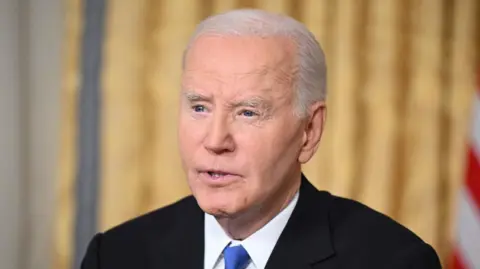Former President Joe Biden has begun an intensive course of radiation therapy to combat an aggressive form of prostate cancer, marking a significant development in his ongoing health battle. The 82-year-old former commander-in-chief is receiving treatment in Philadelphia, where medical teams have implemented a comprehensive approach combining radiation with hormone therapy.
Like a determined general mapping out a battle strategy, Biden’s medical team discovered the cancer after he reported urinary symptoms, leading to the identification of a small prostate nodule. The diagnosis revealed a Gleason score of 9, placing it in the high-risk category that demands swift and decisive action.
As any seasoned newsman who’s covered medical stories knows, these numbers tell an important tale. A Gleason score of 9 indicates an aggressive form of the disease, one that could spread faster than a Texas wildfire if left unchecked. However, there’s a silver lining in this cloud – the cancer has shown sensitivity to hormone treatment, offering doctors additional weapons in their therapeutic arsenal.
The former president’s treatment regimen is expected to span five weeks, and early reports suggest he’s responding well to the interventions. This battle with cancer adds another chapter to Biden’s long-standing advocacy for cancer research, a cause that became deeply personal after losing his son Beau to brain cancer in 2015.
It’s worth noting that Biden’s age and health played a significant role in his decision to step away from the 2024 presidential race, a choice he later described as “difficult” in his first post-White House interview. The man who once held the distinction of being America’s oldest serving president has largely stepped back from the public eye in recent months, focusing instead on his health and family.
This diagnosis sheds light on a broader American health concern. Prostate cancer, second only to skin cancer in its prevalence among men, affects roughly 13 out of every 100 American males during their lifetime. It’s as common as pickup trucks in rural America, yet each case demands its own unique approach.
Biden’s personal battle with cancer extends beyond this current diagnosis. He has previously faced and overcome skin cancer twice, in 2023 and 2025, demonstrating the kind of resilience that has characterized much of his public life.
The former president’s current treatment in Philadelphia represents not just a personal health challenge, but also serves as a reminder of the ongoing importance of cancer research and treatment – a cause he and First Lady Jill Biden championed through their “cancer moonshot” initiative, which aims to prevent over four million cancer deaths by 2047.
As this story continues to develop, one thing remains clear: the former president faces this challenge with the same determination that has marked his decades of public service, backed by top-tier medical care and the support of his family.


